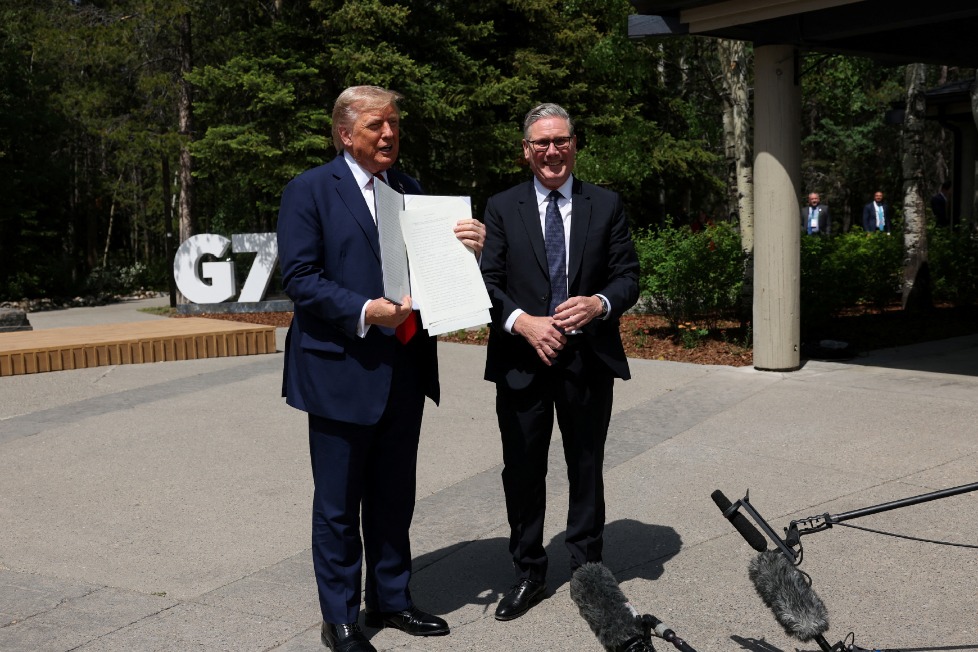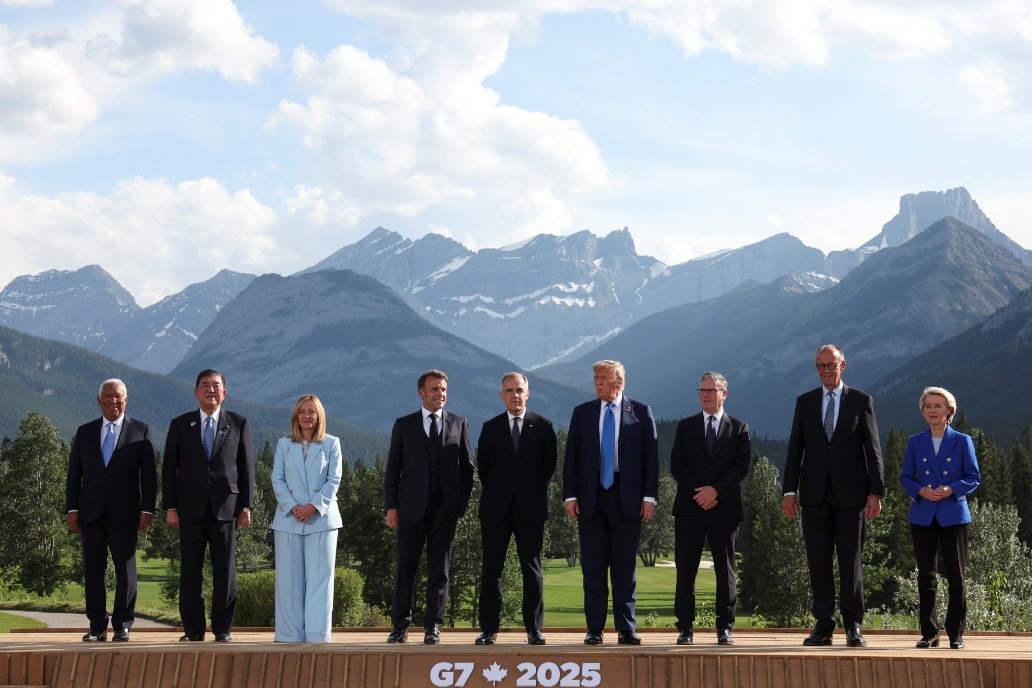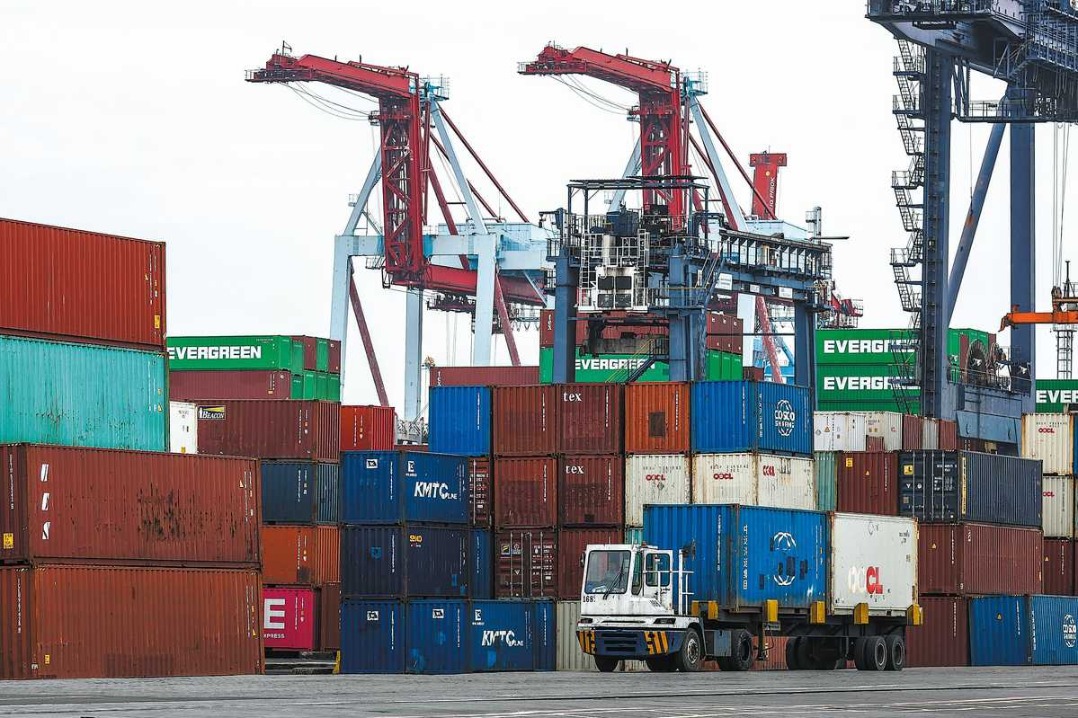Phone flap could cause trade ripples

The report that US lawmakers urged AT&T to cut all commercial ties to Chinese telecom equipment giant Huawei Technologies and reject plans by telecom operator China Mobile to enter the US market has sparked serious concerns in both countries.
Reuters reported on Tuesday that some lawmakers advised US companies that if they have ties to Huawei or China Mobile, it could hamper their ability to do business with the US government.
Senators and House members have demanded AT&T, the world's largest telecom firm, to cut its collaboration with Huawei over standards for the high-speed next generation 5G network as well as the use of Huawei handsets by AT&T's discount subsidiary Cricket, Reuters quoted two unnamed Congressional aides as saying.
Asked in Beijing on Tuesday, Chinese Foreign Ministry spokesman Lu Kang said the Chinese government always encourages Chinese enterprises to carry out foreign investment and cooperation in accordance with market principles, international rules and local laws and regulations.
"Meanwhile, we also hope that relevant countries could level the playing ground and create favorable environment for Chinese enterprises," he said.
The news came a week after AT&T was pressured by US lawmakers to drop its plan to sell Huawei's latest smartphone, the Mate 10, also on alleged national security ground.
Also last week, US Congressman Mike Conaway from Texas and several other members cosponsored the Defending US Government Communications Act, or H.R. 4747. The bill prohibits the US government from purchasing or leasing telecommunications equipment and/or services from Huawei, ZTE or any of their subsidiaries and affiliates.
In a statement, Conaway charged Chinese commercial technology as a vehicle for the Chinese government to spy on US federal agencies, posing a severe national security threat.
"Allowing Huawei, ZTE, and other related entities access to US government communications would be inviting Chinese surveillance into all aspects of our lives," he said.
Daniel Ikenson, director of the Cato Institute's Herbert A. Stiefel Center for Trade Policy Studies, said it's important to keep in mind that banning Huawei and ZTE products from US carriers, consumers, and government offices provide, at best, a false sense of cybersecurity because those measures presume unique threats from those companies.
"That fact is that there are many bad actors out there and there are so many vulnerabilities in all ICT equipment, regardless of where or by whom these products are assembled," he told China Daily on Tuesday.
"We need a smarter way to approach the cybersecurity problem, which would entail subjecting all ICT equipment from all sources to statistically valid auditing systems,"
China's telecom companies have long been a target of US lawmakers. In 2012, a House Intelligence Committee report called Huawei and ZTE, the two largest telecom equipment manufacturers from China, as posing national security threat without providing any evidence.
Huawei also suffered a setback in early 2008 when its bid to buy a minority share of US networking-gear maker 3Com was foiled by the Committee on Foreign Investment in the United States (CFIUS), an inter-agency committee that reviews national security implications of foreign investment in the US.
Gary Hufbauer, a senior fellow at the Washington-based Peterson Institute for International Economics, said on Tuesday that he is worried that the US and China are determined to erect digital barriers to each other's firms.
He cited Huawei and China Mobile as the Chinese targets of US barriers and Apple, Google and others as the US targets of Chinese barriers.
"I don't foresee an agreement to lower barriers, so I conclude that they will get higher in the years ahead. This is regrettable, but national security always trumps economic well being," said Hufbauer, who served as deputy assistant secretary for international trade and investment policy of the US Treasury from 1977 to 1979.
"What that means is that globally successful information and communication technology (ICT) companies, such as Huawei Technologies, have been informally blacklisted from selling network gear to America's telecommunications companies, and selling computers, smartphones, and other electronic devices to US consumers," Ikenson wrote in a blog last week, expressing his concern over US government response.
He believes that it also means that CFIUS, through imminent legislative and regulatory changes, will soon complete its metamorphosis from a body that reviews proposed foreign acquisitions and helps the parties mitigate potential security risks associated with those deals into an insurmountable obstacle to any significant acquisitions of US technology by Chinese companies.

































